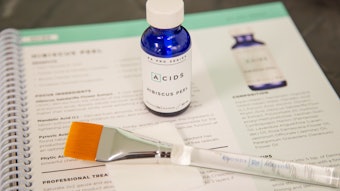With demand for increasingly effective sunscreens and sun care products growing increasingly important, CosmeticsDesign.com took a look at a number of recent studies that highlight the efficacy of supplements. As consumers become increasingly aware of the dangers of sun burn, more and more people are searching out technologically advanced solutions, with current offerings ranging from nano-derived sunscreens to natural-based solutions such as cuttlefish extract.
However, in recent months there has been a growing band of evidence to suggest that supplements could also be a serious new contender within the fast-growing sun care segment.
Beta-carotene supplements
Data from a number of studies was pooled and published last month in the journal Photochemistry and Photobiology regarding the efficacy of beta-carotene supplements.
"This meta-analysis indicates that beta-carotene supplementation of humans is effective in providing protection against the development of a sunburn reaction," wrote Wolfgang Kopcke from Munster University Hospital and Jean Krutmann from the Heinrich-Heine-University in Dusseldorf.
Kopcke and Krutmann searched for studies on beta-carotene supplementation studies for protecting humans against sunburn. Seven studies were identified that tested the effectiveness of the carotenoid.
The article in the journal Photochemistry and Photobiology concluded that 10 weeks of supplementation would provide noticeable protection against sunburn, while every additional month of supplementation improved the protection level further.
Speculation over antioxidant activity
The researchers said the exact mechanism or mechanisms behind beta-carotenoid's sun protection were unknown, but stressed that it was tempting to speculate that the carotenoid's antioxidant activity may be responsible.
On exposure to UV radiation, particularly UV-B, reactive oxygen species (ROS) are produced in the skin that may result in oxidative stress, a known accelerator of the ageing process. Beta-carotene may quench these ROS and thereby offer skin protection.
This evidence adds to a growing body of science focusing on the potential benefits of nutrients to boost skin health from within, with lutein, lycopene and superoxide dismutase (SOD) having been reported to improve skin health.
Lycopeneand tomato paste
Another recent study published in the British Society for Investigative Dermatology on lycopenes highlighted the fact that tomato paste, which is rich in lycopenes, may protect against sun-induced aging and sunburn.
The study findings revealed that subjects who had received five tablespoons of tomato paste a day over a 12-week period had 33% better protection against sun burn. The benefits of the tomato paste were attributed to the lycopene content, which may neutralize the harmful effects of UV light due to the excess production reactive oxygen species (ROS) which can damage important skin structures.
Skin samples taken from the subjects indicated that the tomato paste-supplemented individuals had higher skin levels of pro-collagen, a molecule which gives the skin its structure and loss of which leads to skin aging and lack of elasticity.
Both of these studies highlight the huge growth in products that are categorized as part of the 'beauty from within' trend, which is also spilling over into sun care. Although this is not the first time that scientific studies have shown the efficacy of lycopene, beta-carotenes and other supplements as sunscreens, the increasing body of scientific evidence is expected to give further weight to the development of this still very small and niche market.
CosmeticsDesign.com, June 10, 2008










